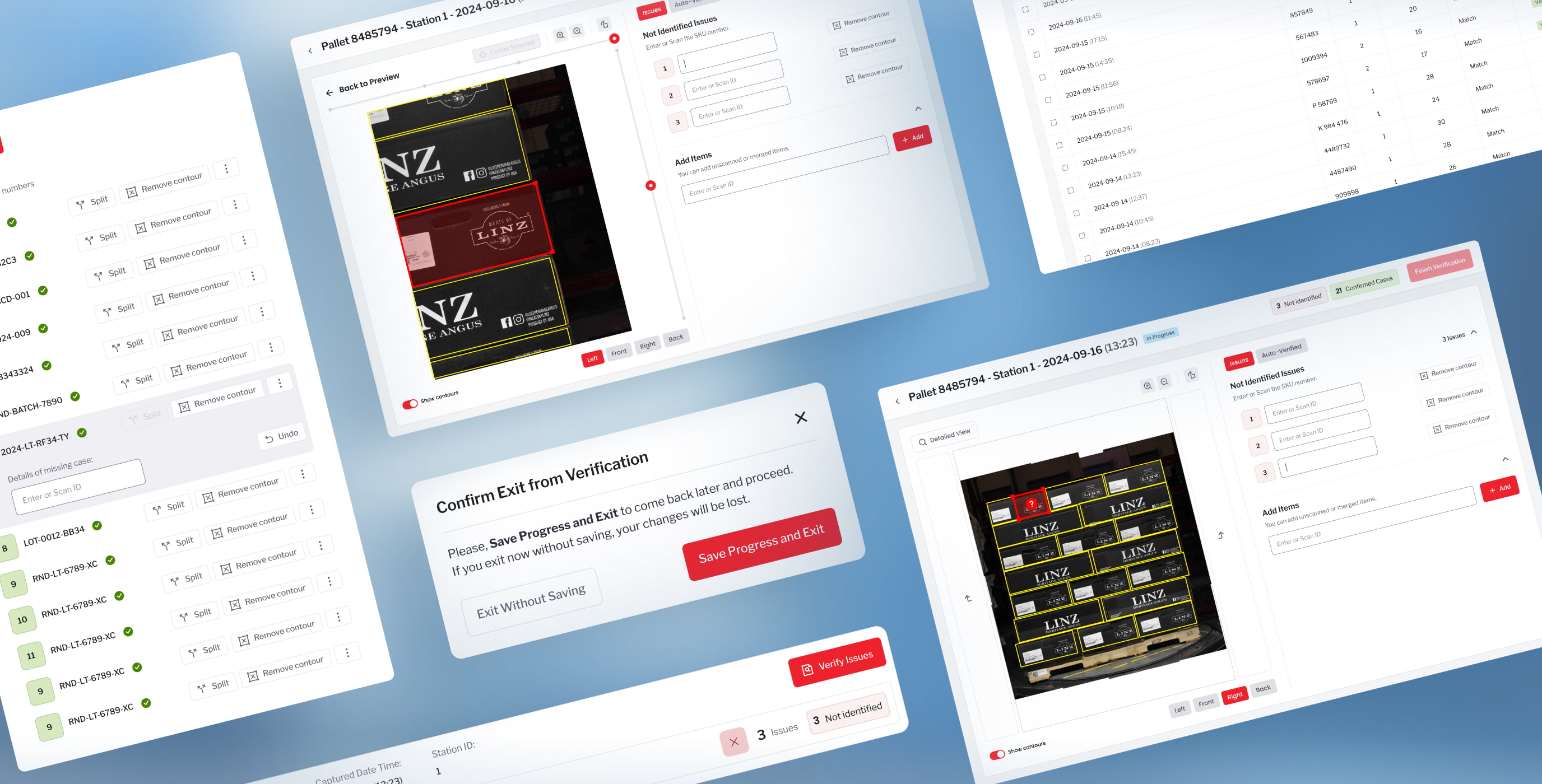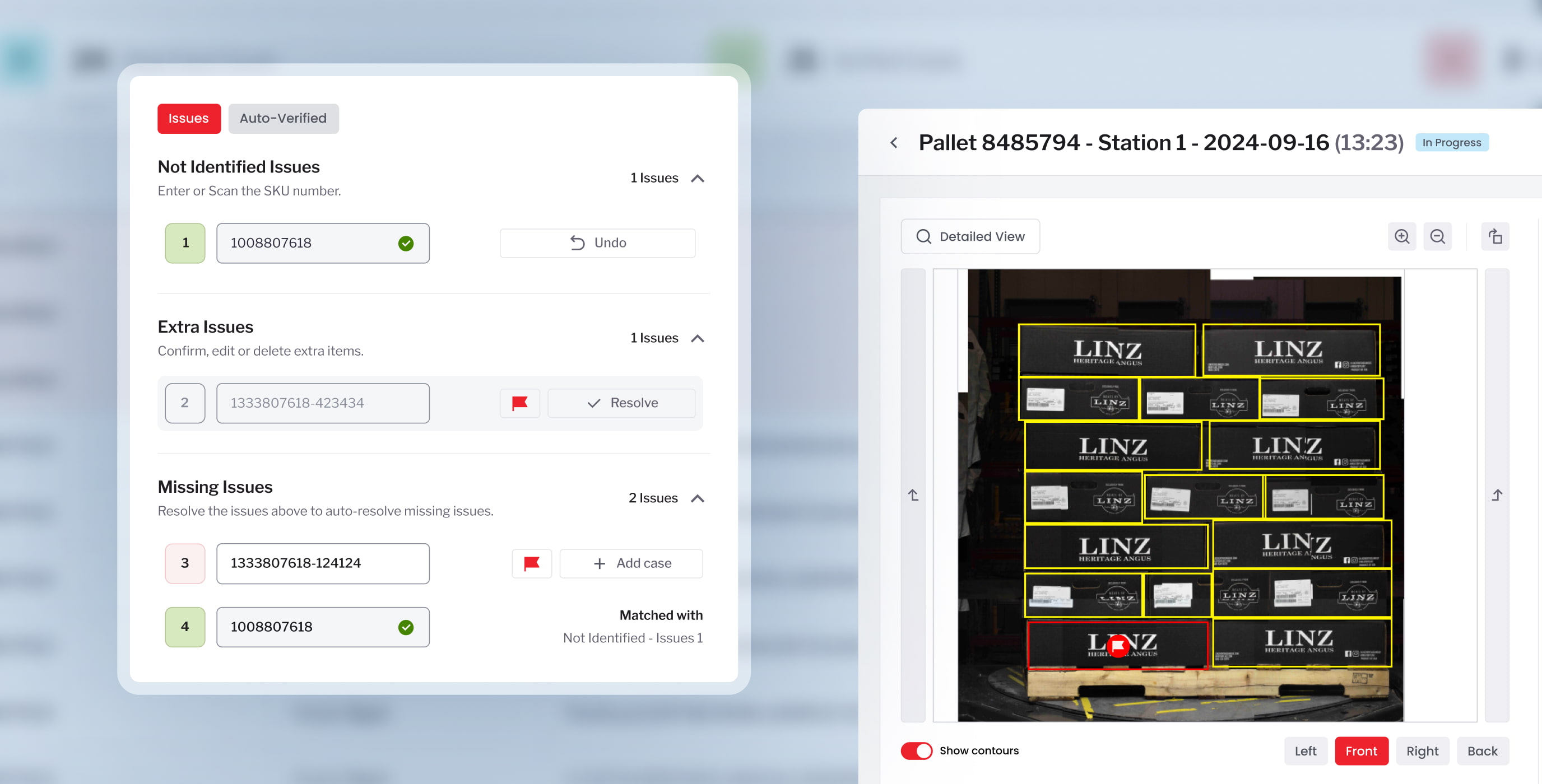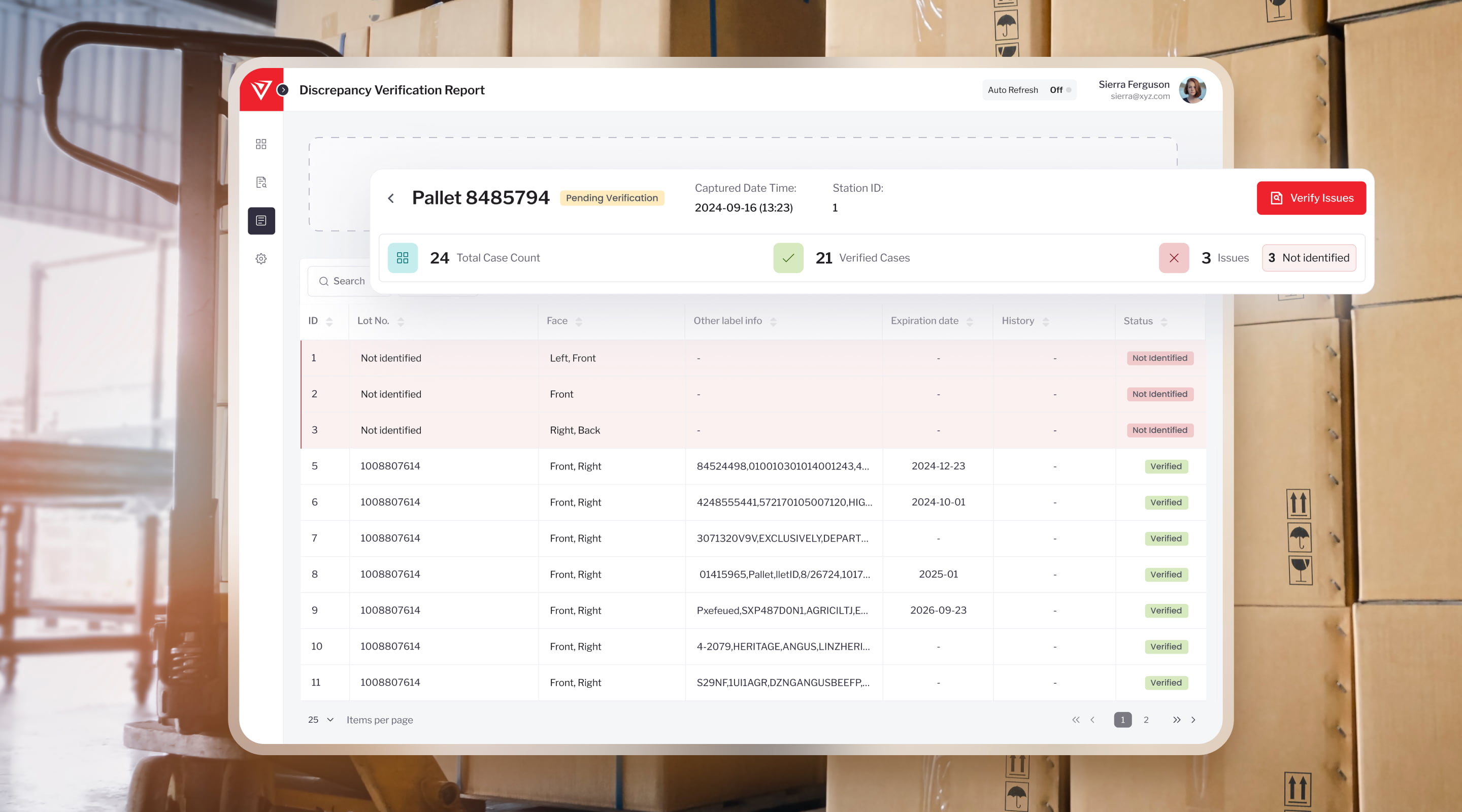Project highlights

Task
Redesign verification & resolution flows for auditors and operators, while reimagining reporting and new use cases

Team
1 BA/PM, 1 Product Designer, on client’s side: PO/PM, BA, engineers

Duration
1 year 4 months

Scope
Unified verification & resolution flow, reporting redesign, image-based interactions, saved views & advanced filtering, tablet-first patterns, implementation guidelines, dashboard concepts
About the client
Vimaan is a Silicon Valley-based computer vision company helping warehouses and fulfillment centers achieve real-time inventory visibility. Founded in 2017, the company launched publicly in 2022 after raising $25M in seed and Series A funding.
Their hardware scanners and AI-powered software cover key warehouse workflows like 4-sided pallet scanning, ti-hi counting, dimensioning, cycle counting, and inventory visualization, enabling accurate inventory management across receiving, put-away, order picking, and shipping.
Their mission: give warehouses instant visibility and cut labor costs by automating time-consuming tasks such as barcode reading and bin utilization.
What the client needed
Vimaan’s systems already flagged discrepancies between physical inventory and WMS records with high accuracy. But the experience of resolving them was fragmented: operators had to juggle between long reports, images with multiple scroll areas, and separate data tables.
They needed a more intuitive inventory management UI that would:
-
simplify verification and resolution for auditors and operators;
-
remove scroll-heavy reporting layouts;
-
adapt interactions for multiple devices (pallet and shelf scanners);
-
provide scalable guidelines for future features.

Challenges
- different use cases (pallets vs shelves) needed a consistent verification experience;
- the design had to work for both remote auditors on desktops and operators on rugged tablets;
- hardware constraints required close collaboration with engineering to align on feasibility.
Results
- faster audits with streamlined, guided verification flow;
- lower cognitive load thanks to side-by-side image/data and drill-in detail pages;
- tablet-friendly design that works with gloves and rugged devices;
- implementation guidelines that supported engineers in rolling out changes.

Our approach to inventory management UI .
The project started with a narrow focus on report UX and grew into a longer partnership to unify auditor and operator experiences. To design a responsive inventory management UI within real technical and environmental constraints, we worked closely with Vimaan’s PO, BA, and engineers.
Collaboration highlights:
-
frequent syncs to align on requirements and priorities;
-
context shared via specs, demo videos, and workflow workshops;
-
iterative design cycles in Figma with async feedback from devs and PMs;
-
responsive rules and interaction guidelines for smooth implementation.
Discrepancy verification flow
We transformed complex, multi-level tables into a guided flow where discrepancies appear side-by-side with the corresponding scan. Counters show how many and what types of issues exist, while grouped discrepancies let users resolve related problems together, sometimes clearing multiple errors with a single action.
This streamlined approach gave auditors and operators a faster, clearer way to work through discrepancies.
The design is tablet-first, with glove-friendly controls that adapt seamlessly to rugged warehouse devices as well as desktops.
Image-based interactions
Pallet and shelf scans became fully interactive, letting users explore images and data in one place without breaking context:
-
clicking a row highlights the exact box in the pallet image;
-
zoom, pan, and rotation tools allow close inspection of labels and contours;
-
shelf scans extend this with multi-angle navigation for more complex layouts.
Error type handling
We streamlined discrepancy resolution into predictable patterns, so operators always know how to act on missing, extra, or unidentified SKU, with instant feedback keeping the flow fast and error-proof.

Reporting
Reports were redesigned to be lightweight, role-specific, and actionable, where auditors and operators can scan information and drill into details without distraction:
-
flat tables replaced nested scrolls, keeping information on a single plane;
-
filters, search, and saved views let each role zero in on what matters;
-
drill-in views connect high-level insights with detailed pallet or shelf reports.
StorTrack shelf scanning
Shelf cycle counting required different interactions from pallet scanning, since users worked with multi-angle images. We extended the design to fit this use case:
-
visual overlays highlight mismatches between expected and detected items;
-
resolution steps mirror pallet flows, reducing training and keeping actions familiar;
-
consistent labels and markers keep context across both scanning modes.

we reply under 24 hours.
free
session


